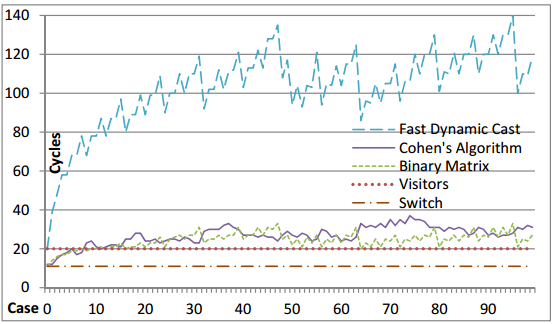
Open and Efficient Type Switch for C++
Yuriy Solodkyy, Gabriel Dos Reis, Bjarne Stroustrup
... we implement a type switch construct as an ISO C++11 library, called Mach7. This library-only implementation provides concise notation and outperforms the visitor design pattern. ... For closed sets of types, its performance roughly equals equivalent code in functional languages, such as OCaml and Haskell.
C++ is a powerful library-building language. Whenever possible, we prefer to add new functionality as a library rather than in the language. This is an excellent example of where a C++ library-only solution can get equivalent performance to the language support included in some popular functional languages.

Add a Comment
Comments are closed.